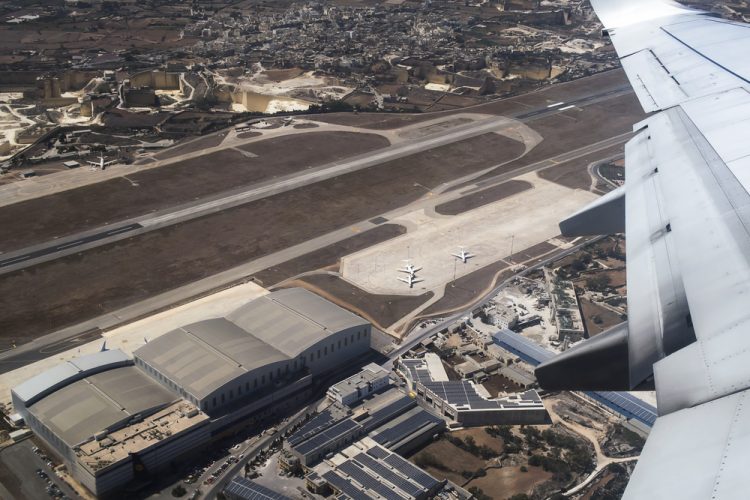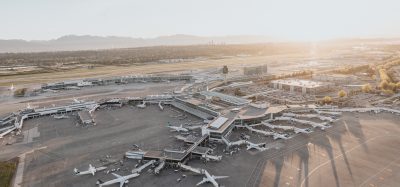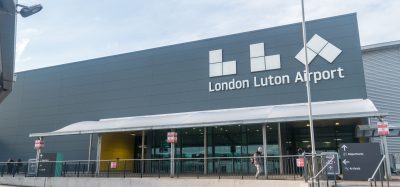Malta International Airport completes resurfacing of runway 05-23
- Like
- Digg
- Del
- Tumblr
- VKontakte
- Buffer
- Love This
- Odnoklassniki
- Meneame
- Blogger
- Amazon
- Yahoo Mail
- Gmail
- AOL
- Newsvine
- HackerNews
- Evernote
- MySpace
- Mail.ru
- Viadeo
- Line
- Comments
- Yummly
- SMS
- Viber
- Telegram
- Subscribe
- Skype
- Facebook Messenger
- Kakao
- LiveJournal
- Yammer
- Edgar
- Fintel
- Mix
- Instapaper
- Copy Link
Posted: 4 January 2024 | International Airport Review | No comments yet
Malta International Airport successfully concluded the resurfacing of Runway 05-23, the airport’s 2.4 kilometres-long secondary runway.


Malta International Airport to complete runway 05-23
Malta International Airport successfully concluded the resurfacing of Runway 05-23; the airport’s 2.4 kilometres-long secondary runway, which was originally constructed as an air force base when Malta was under British Rule. While the runway has re-opened to General Aviation, it is expected to be fully operational by the end of 2023, with minor infrastructural works due to take place in early January.
Runway 23-05 is generally limited to use by General Aviation aircraft and aviation training institutions, however the runway also carries 9% of the airport’s commercial movements. Apart from providing the airport with additional operational flexibility, the resurfacing of this runway was critical to ensure that rehabilitation works could be undertaken on the primary runway, Runway 13-31, over the coming years.
“We set the ball rolling on this €14 million project in the first week of October and saw the project through to completion in under three months. This rehabilitation project formed part of our airport’s €250 million capital investment programme for the period covering 2023 until 2028, which will deliver significant upgrades aimed at improving the safety and efficiency of airport operations while developing the airport further,” said Malta International Airport’s Chief Executive Officer Alan Borg.
The Director General for Civil Aviation at Transport Malta’s Civil Aviation Directorate, Capt. Charles Pace, said that he is pleased to see that the timelines for the project have been kept and that restrictions imposed on the General Aviation community will be lifted. “I acknowledge that the restrictions were tough on the General Aviation community, but the works were necessary, and it was difficult to find the right balance at what has become a very busy airport all year round,” said Capt. Pace.
Due to the scale of the infrastructural works required, the phasing of the project was meticulously planned, with the excavation, build-up and reconstruction of sections of the runway taking place at all hours to ensure that the programme of works was completed as quickly yet safely as possible. Key highlights of the project are detailed below.
Mr. Borg extended his gratitude to the 400-strong team involved in the project, saying “I would like to take this opportunity to thank the airport team for working against the clock to carry this complex project over the finish line before the end of the year. I would also like to express my gratitude to our numerous stakeholders, including the Malta Air Traffic Control Services, the Ministry for Transport, Infrastructure, and Capital Projects and Transport Malta’s Civil Aviation Directorate, as well as our contractors and sub-contractors, for their cooperation throughout the duration of the project, and for the pivotal role they played in the successful rehabilitation of Runway 05-23.”
Project highlights
The resurfacing project, which commenced in the first week of October and was completed by the last week of December, entailed a series of meticulous interventions to reinforce and modernise the infrastructure of Runway 05-23.
Key highlights of the mammoth project at Malta International Airport include:
- The application of approximately 35,000 tonnes of special asphalt.
- The replacement of approximately 3,000 square meters of damaged concrete sections were replaced with durable concrete blocks to bolster the structural integrity of the runway.
- The installation of 50 kilometres of cable ducts along the sides of the runway, together with 35 kilometres of cables. 100 new manholes were also introduced to facilitate seamless cable routing.
- The installation of over 2.4 kilometres of stormwater pipework to mitigate the risk of water accumulation on the runway.
- The application of paint markings, covering 6,500 square meters.
- The integration of state-of-the-art lighting control systems to complement the installation of 300 new light fittings along the runway.
Related topics
Airside operations, Operational efficiency, Runways and pavements
Related airports
Related organisations
Civil Aviation at Transport Malta’s Civil Aviation Directorate, Malta Air Traffic Control Services, Ministry for Transport Infrastructure and Capital Projects, Transport Malta’s Civil Aviation Directorate


















